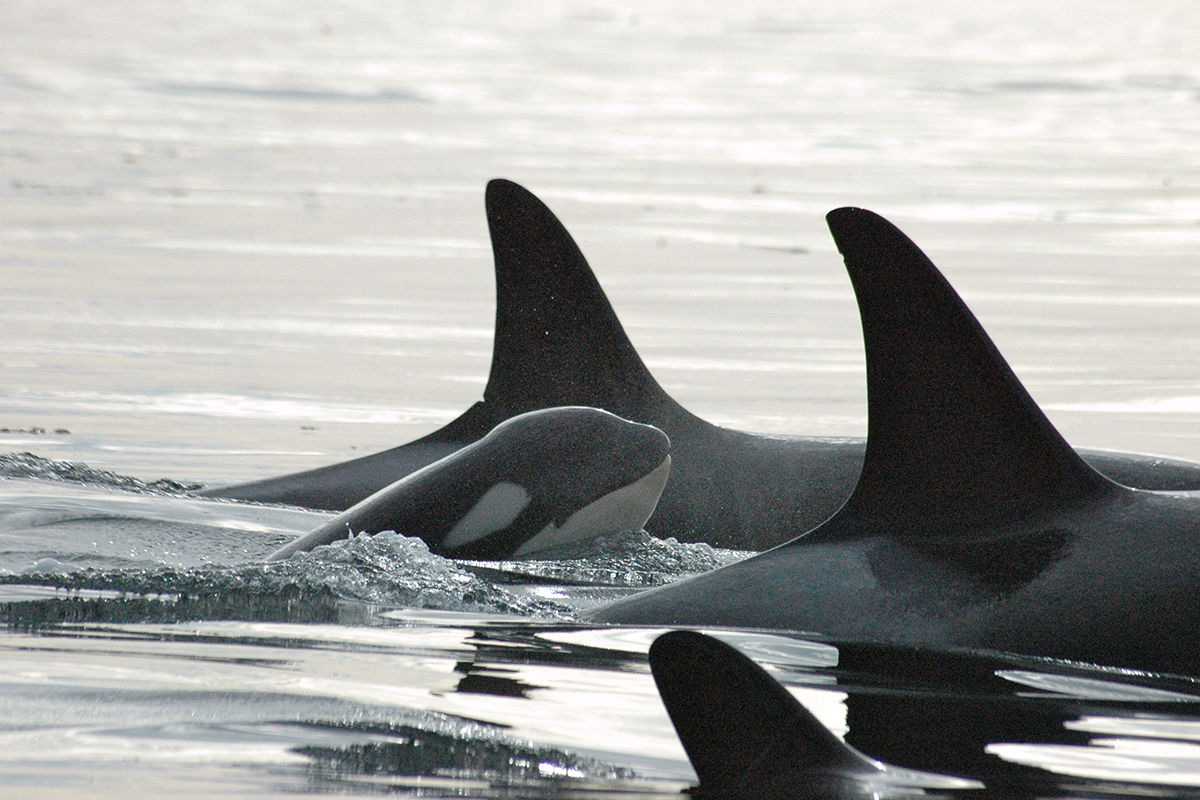News ·
Celebrating five of the ocean’s best mums
Our top picks for the most dedicated mums of the marine world this Mother's Day.
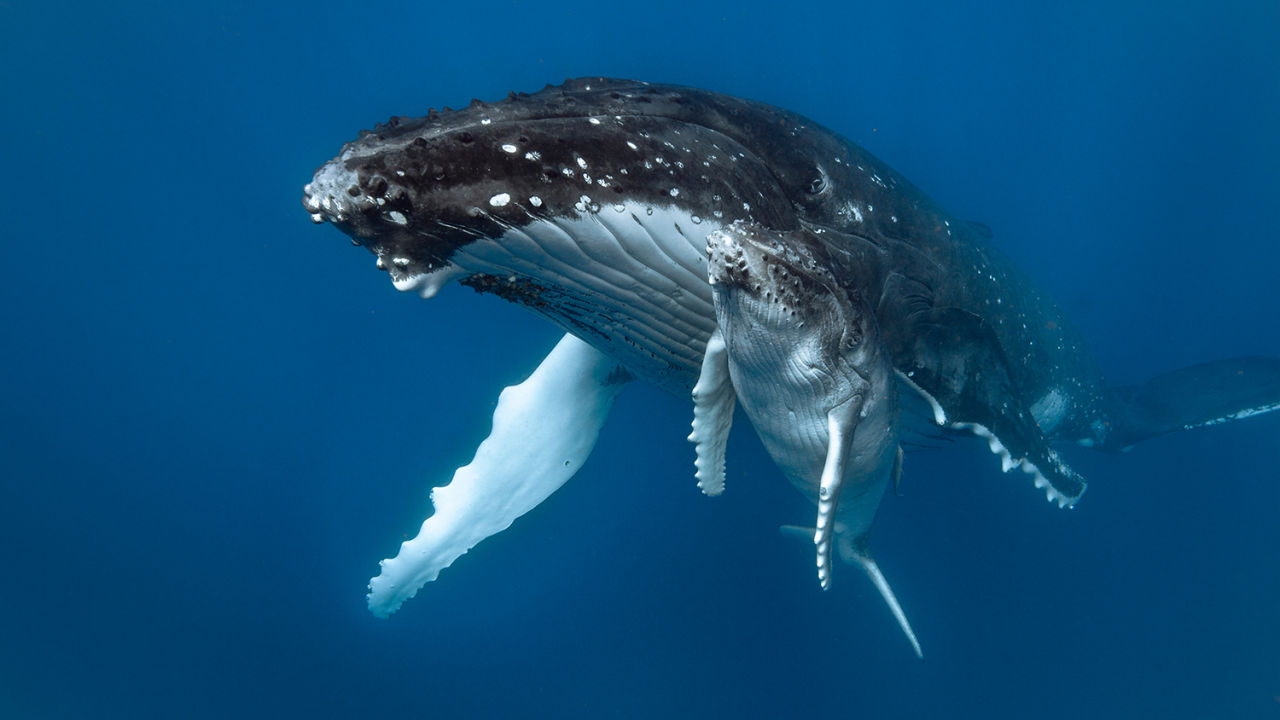
The ocean is home to some of the most remarkable mothers, who all play an important role in our underwater ecosystems. These marine matriarchs exhibit unwavering dedication, self-sacrifice and fierce protection for their young. This Mother’s Day, we celebrate our favourite five mothers of the marine world.
#Humpback Whale
Pregnancy has its challenges but spare a thought for the humpback whale mother-to-be, who swims over 6,500 kilometres at the peak of her gestation (11-12 months). Humpback calves are born quite helpless so these new mums give up a lot so their offspring can survive the maiden trip back to Antarctica. During the nursing period, a humpback mother will forego feeding herself to provide about 190 litres (50 gallons) of blubber milk per day causing her to lose up to a third of her body fat.
Humpback mothers are also fiercely protective of their calves and she will often position the calf overhead while traversing. She will also place herself between her baby and predators or aggressive males. To minimise the impacts of external threats, humpback mothers are known to whisper to, or touch fins with, their calf while migrating to avoid detection.
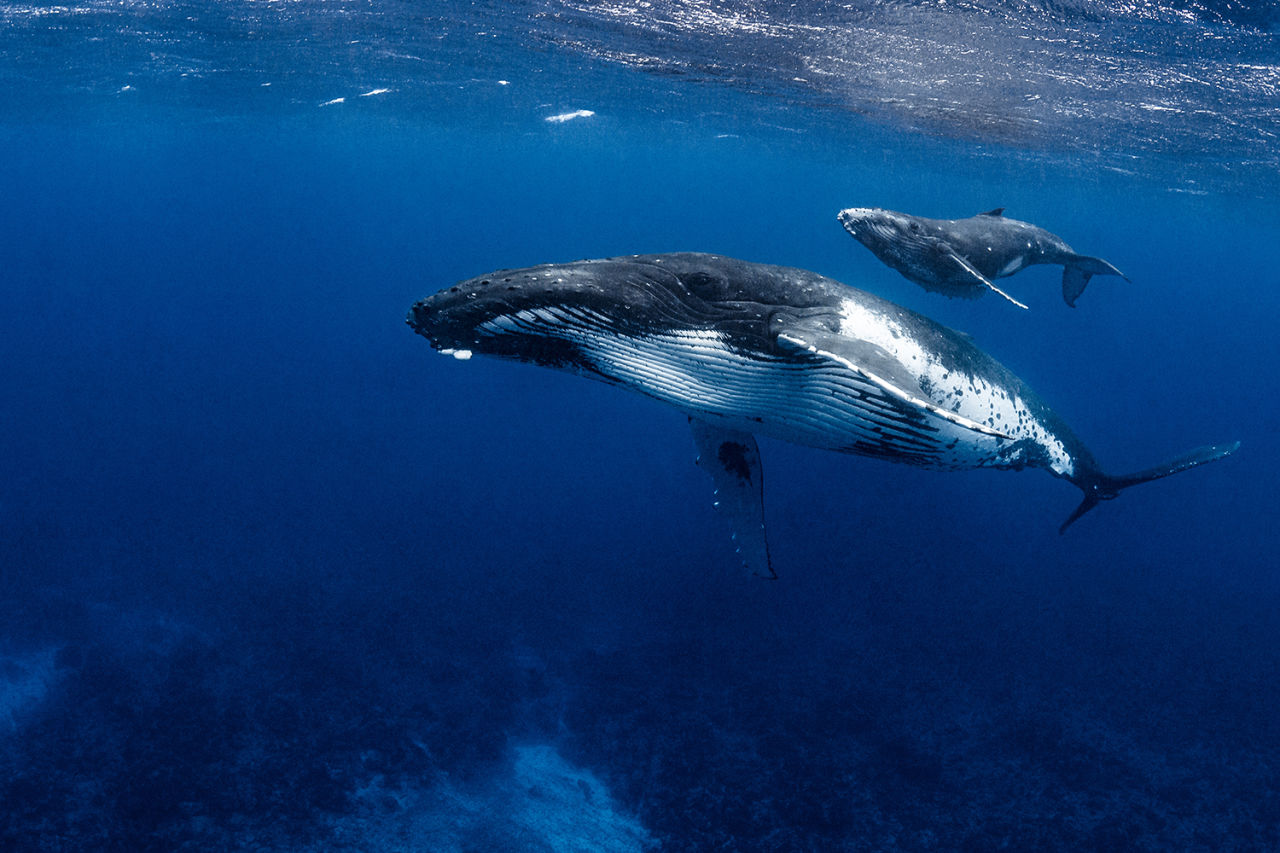
Humpback whales whisper with their calves to avoid detection.
#Octopus
Whoever said “don’t put all your eggs in one basket” hasn’t met an octopus mum. These first- and only-time mums get just one crack at laying eggs so the stakes are high. They lay hundreds or even thousands of eggs at once, incubating and brooding over their unborn babies for months and in some cases years depending on the species.
Throughout this long incubation period, these marine mums are believed to refrain from feeding while protecting their eggs in an amazing display of self-sacrifice. They diligently guard and care for their eggs as they lose weight and weaken due to a lack of food. These devoted mums pay the ultimate price – as soon as their eggs hatch, they perish.
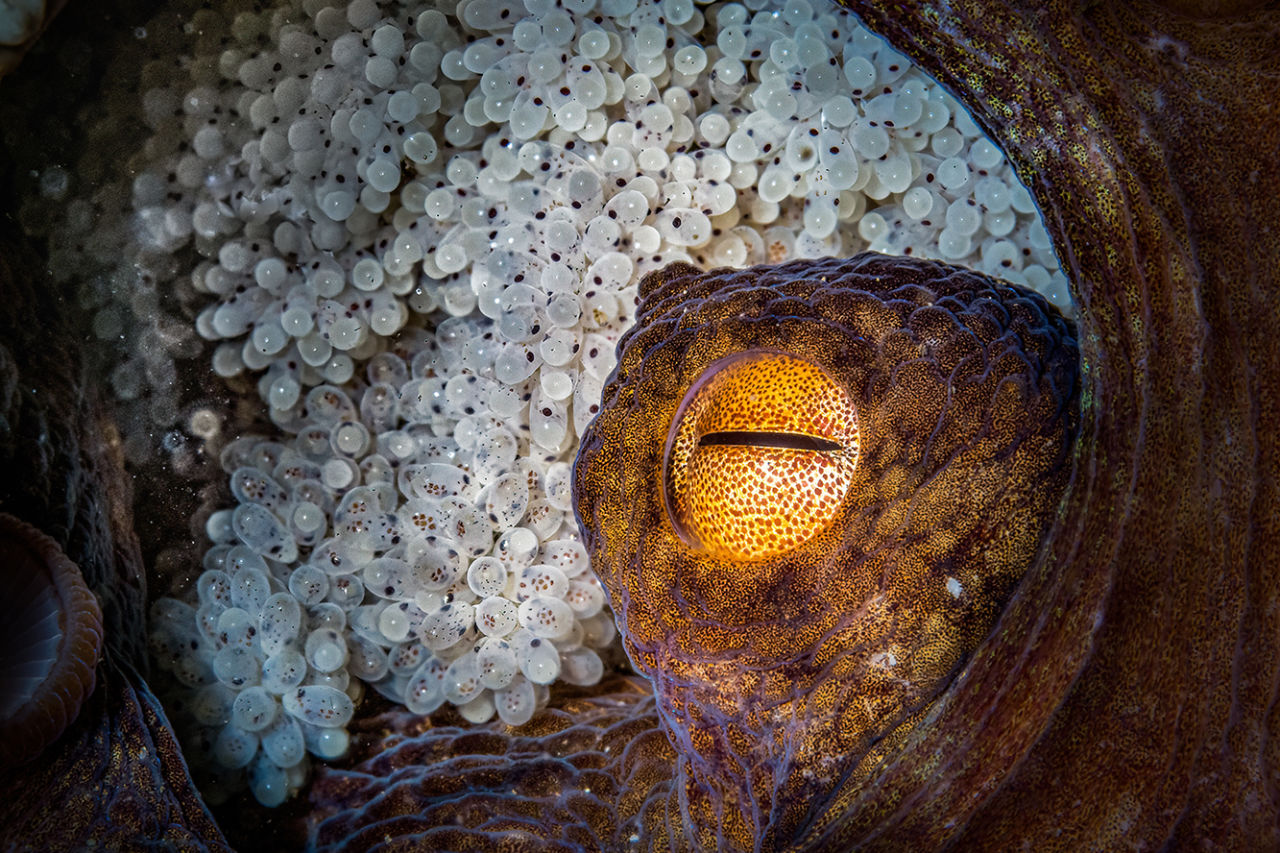
Octopus mums refrain from eating to protect their eggs.
#Clownfish
Here’s something they didn’t tell us in Finding Nemo: all clownfish are born male. This makes clownfish mums unique in nature because, not only have they switched sex, they are the only female in their community. This queen is treated royally as the alpha. Physically the largest, she has a posse of smaller male suitors to take care of the young and defend her.
The female clownfish will lay up to a thousand eggs on coral or rocks near sea anemones throughout the year. The ‘chosen’ male (usually the most dominant one) fertilises the eggs and guards them directly until they hatch. If the female dies, the largest male will become female and take her place.
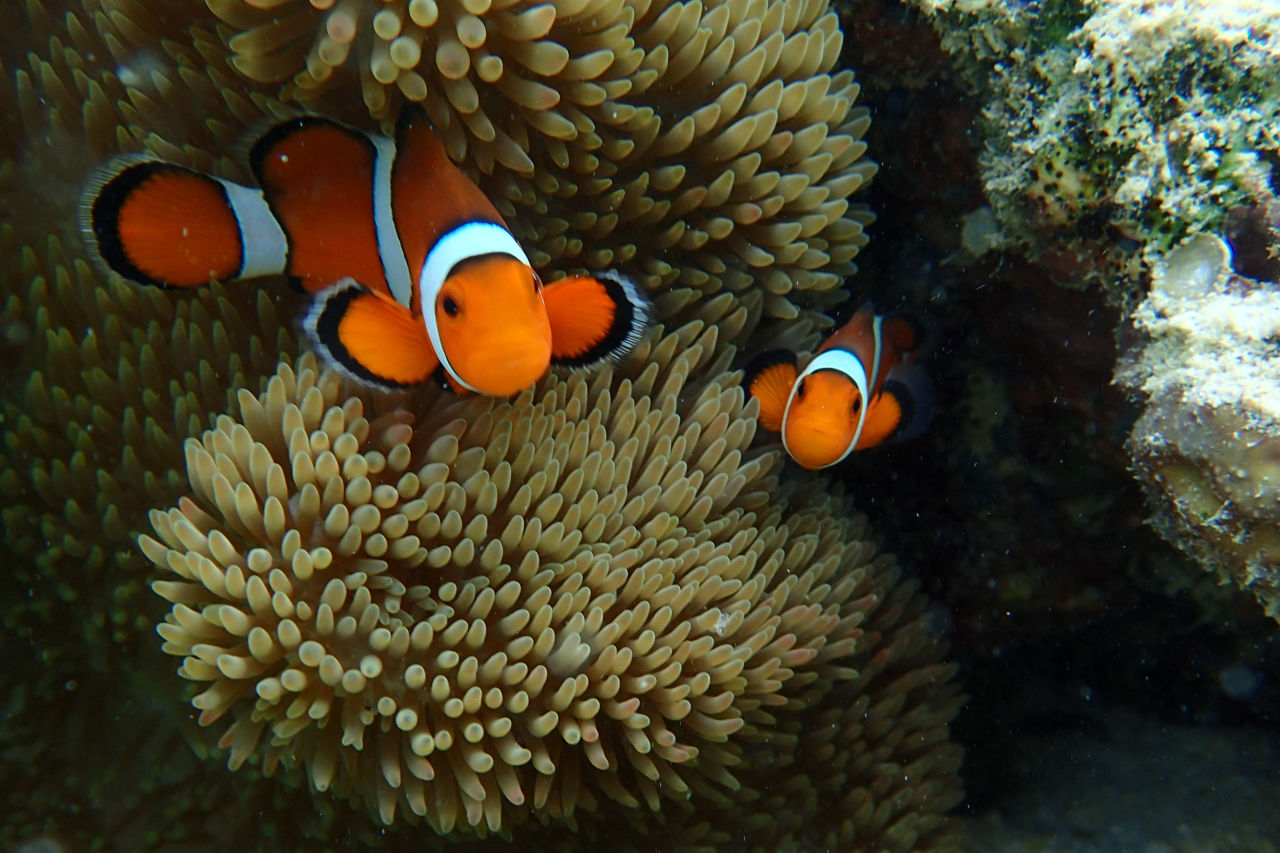
Clownfish mothers are the alpha of their community and larger in size compared to males.
#Stingray
Like sharks, stingray mums are ovoviviparous which means their babies are internally fertilised. Unusually, some species of stingray can actually store sperm for long periods - months and in some cases years. Scientists are yet to determine how long a female stingray can store a male’s sperm following a successful courtship, but these mums get to choose when the time is right for birthing.
In rare cases, stingray mums don’t need a male and have produced asexually. She uses her own eggs to create a genetically complete clone in the absence of males of her species. This process has stirred interest globally with a stingray called Charlotte reportedly pregnant despite living in an aquarium without a male stingray.
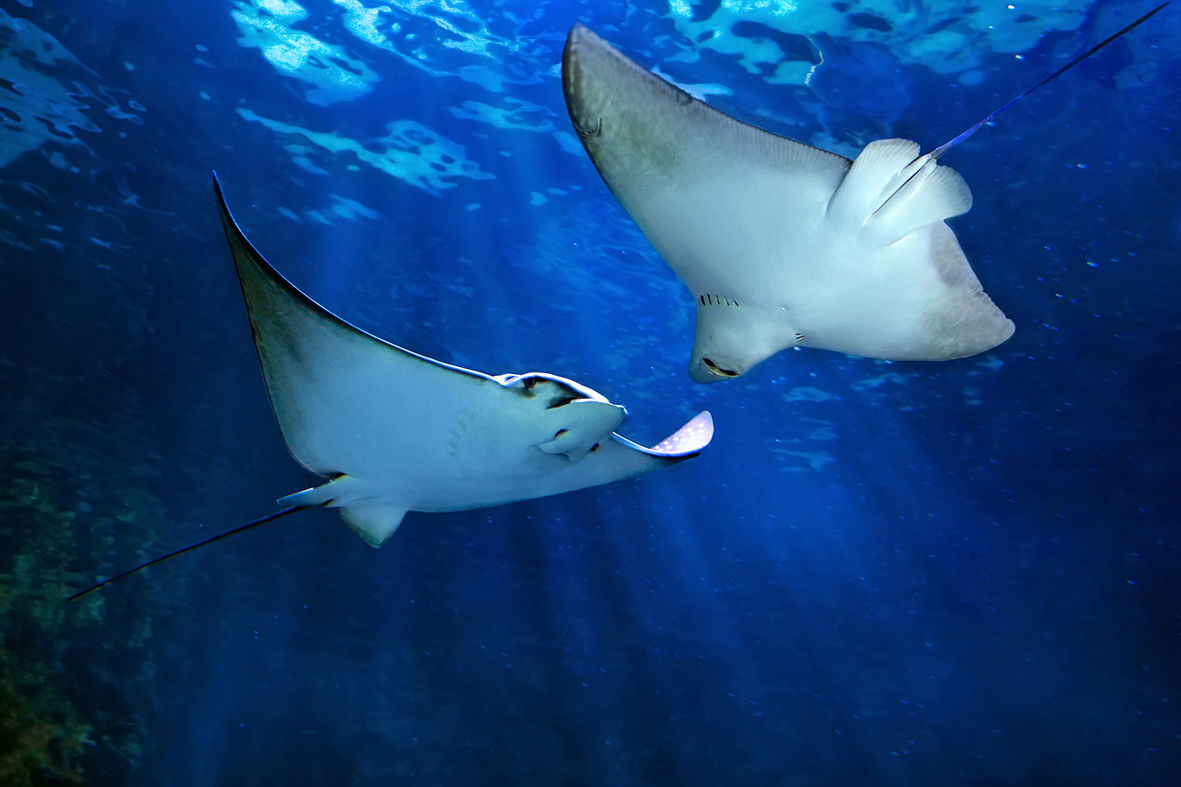
Charlotte the stingray is pregnant despite living in an aquarium without a male. Video credit: NBC News.
#Orca
Renowned for their killer maternal instinct and a total devotion to their calves, orca mothers are some of the fiercest mums in the world, but in orca pods it is actually grandma that knows best. Studies have shown that the pod benefits from the wealth of survival and ecological knowledge that grandma shares. The success of hunting expeditions and overall life expectancy of pods go up when an older female orca relative is in charge.
Motherhood is tough for new orca mums as infant mortality is high in the first year. Orca calves don’t sleep for the first month of life which means mum also abstains from sleep during those critical early stages. While some young will separate from the pod after maturity, many remain with their family unit for life.
